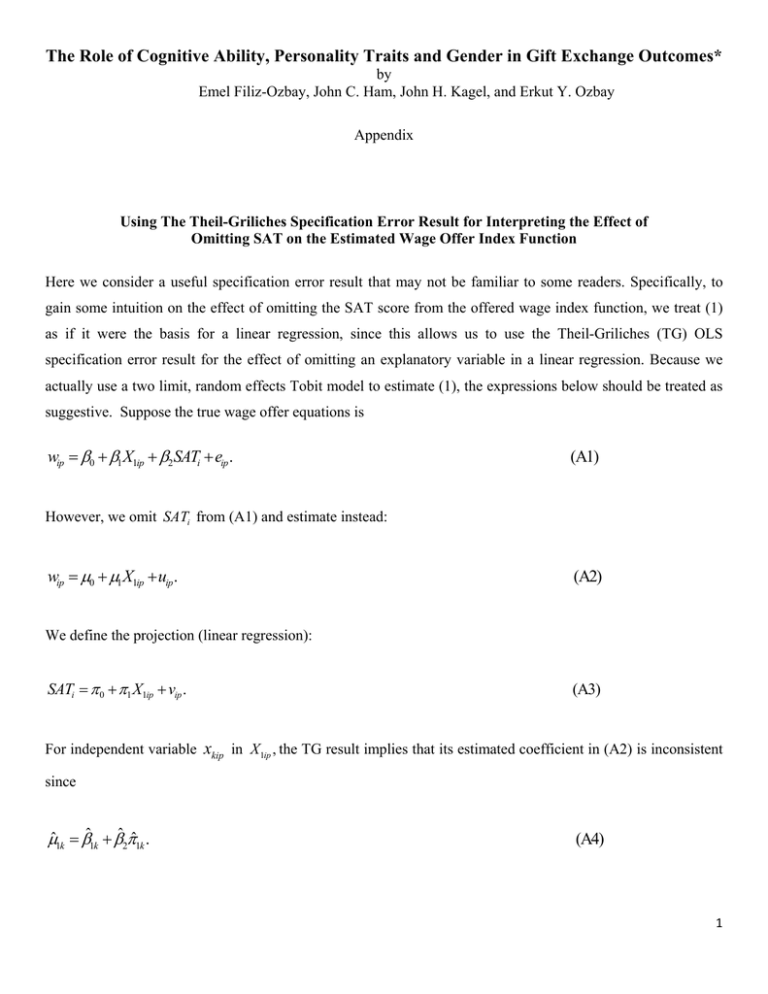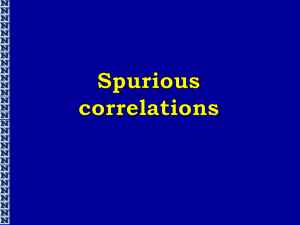β β β μ μ μ β β π
advertisement

The Role of Cognitive Ability, Personality Traits and Gender in Gift Exchange Outcomes* by Emel Filiz-Ozbay, John C. Ham, John H. Kagel, and Erkut Y. Ozbay Appendix Using The Theil-Griliches Specification Error Result for Interpreting the Effect of Omitting SAT on the Estimated Wage Offer Index Function Here we consider a useful specification error result that may not be familiar to some readers. Specifically, to gain some intuition on the effect of omitting the SAT score from the offered wage index function, we treat (1) as if it were the basis for a linear regression, since this allows us to use the Theil-Griliches (TG) OLS specification error result for the effect of omitting an explanatory variable in a linear regression. Because we actually use a two limit, random effects Tobit model to estimate (1), the expressions below should be treated as suggestive. Suppose the true wage offer equations is wip 0 1 X1ip 2SATi eip . (A1) However, we omit SATi from (A1) and estimate instead: wip 0 1 X1ip uip . (A2) We define the projection (linear regression): SATi 0 1 X1ip vip . (A3) For independent variable xkip in X1ip , the TG result implies that its estimated coefficient in (A2) is inconsistent since ˆ1k ˆ1k ˆ2ˆ1k . (A4) 1 In our work ˆ2 0 (see column (1) of Table 2), then omitting SATi and running (A2) will lead to, e.g., agreeableness having a coefficient that is too small because its coefficient in a multiple regression of SATi on X ip is negative. Further, the estimate of the intercept will also be inconsistent because ˆ0 ˆ0 ˆ2ˆ0 . (A5) 2




